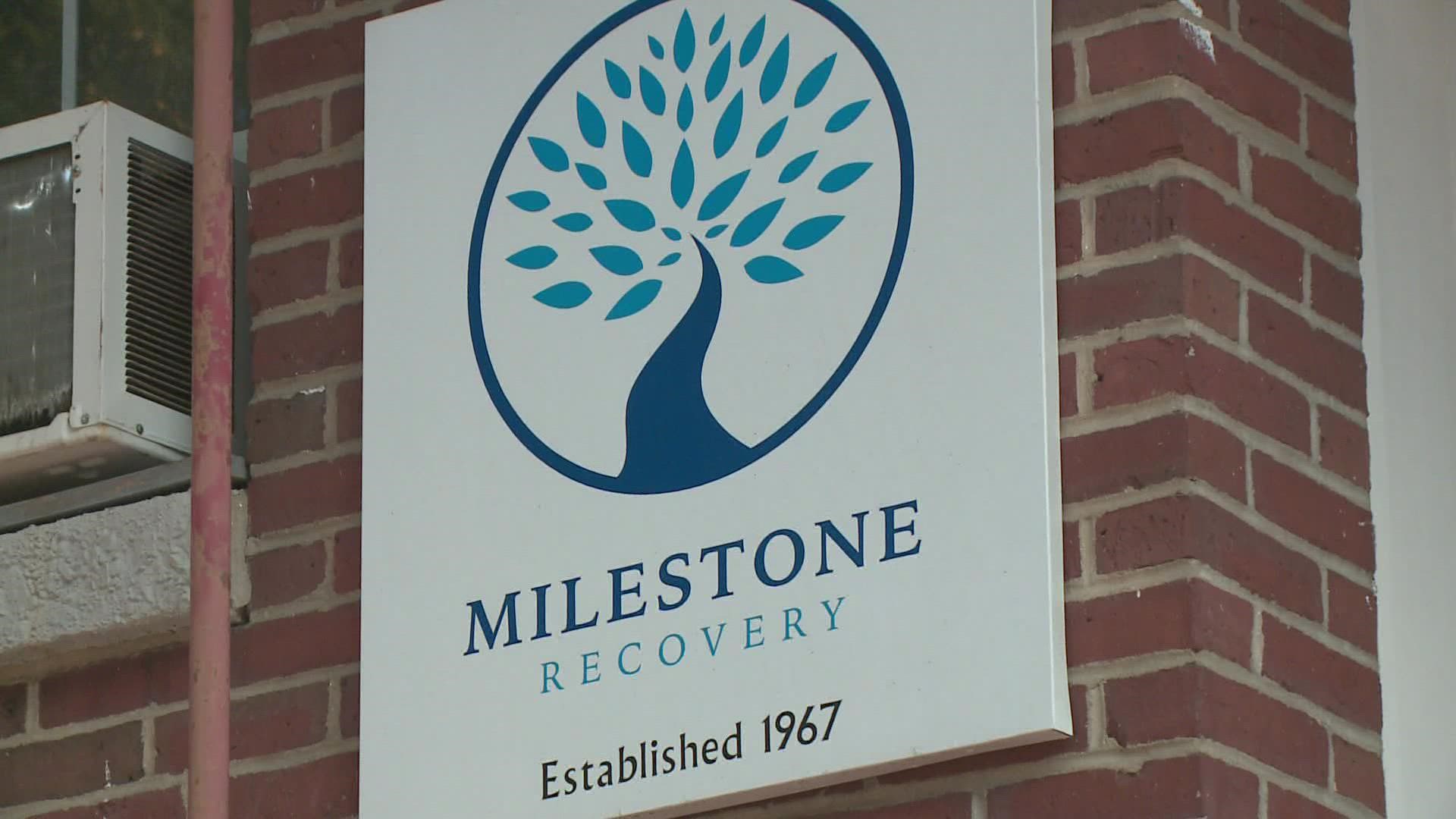PORTLAND, Maine — More than 500 Mainers died from overdoses last year, a more than 30% increase from the previous year, according to the Maine Attorney General's Office.
From January to August of this year, there have been nearly 6,000 overdoses, with 399 of them fatal.
The demand for treatment has put a tremendous strain on nonprofit detox centers that accept MaineCare (the state's version of Medicaid) and uninsured patients. Those programs are finally getting a shot in funding that's long overdue.
While many aspects of society emerge from the COVID pandemic, lingering isolation and stigma are still tightening their grip on people battling substance use disorder.
"There is just this extended desperation because of COVID. I think a lot of people have hit their limit," Oliver Bradeen, executive director of Milestone Recovery in Portland, said. During the pandemic, the center's clinical staff saw more patients who were using dangerous drugs, including fentanyl.
"Fentanyl or those could be benzodiazepine, like a Xanax, so there is a lot of street drugs right now. And people don't know what they are using, and that increases the risk," Bradeen said.
Milestone is one of only two detox centers in the state that accepts MaineCare, which provides financial assistance to people with limited income and uninsured patients.
The program, which has 16 beds in its seven-day treatment program, has scaled back to 10 beds due to COVID. And the program is always at capacity.
For many, the lack of access is fueling the growing number of fatal overdoses.
Earlier this fall, the Mills Administration increased the MaineCare reimbursement rate by 77% for detox providers Milestone and Wellspring, which operates the New Horizons Detox Center, a 10-bed facility in Hampden.
Low reimbursement rates for MaineCare made it difficult for nonprofit detox centers to compete with hospitals and other medical providers for nurses and medical staff. Now they say they can offer competitive wages.
Suzanne Farley is the executive director of Wellspring. The facility is currently closed, but a decision on reopening the detox center is expected later this week, Farley told NEWS CENTER Maine in a statement:
"Wellspring is receiving an increase in Mainecare Reimbursement rates for all residential services that are billed under section 97 Appendix B. This includes our detox center, as well as our three residential halfway house/treatment programs."
The statement continued, "We’re grateful for the increases, though they are long overdue and have greatly compromised our ability to attract and retain qualified staff over the past few years. Our intent, moving forward, is to invest in our employees’ wages, and to hire for long unfilled vacant positions. We hope this will decrease employee stress, and exhaustion, as well as improve our overall delivery of quality of services."
By the time he was 16, Joe Robichaud was using and selling drugs. After serving time behind bars, he ended up at Milestone 4 1/2 years ago, his last hope. He said the boost in funding could give more low-income Mainers access to much-needed treatment, programs that are desperately needed.
"People are dying because of the lack of resources, you know, and the shame, guilt and remorse," Joe Robichaud, a peer navigator at Milestone, said.
Now in active recovery, he is a peer navigator at the detox center, mentoring others on their journey to sobriety.
"I think it's very important to know that somebody else has gone through what they have gone through and that pain," Robichaud said.
More NEWS CENTER Maine stories.

